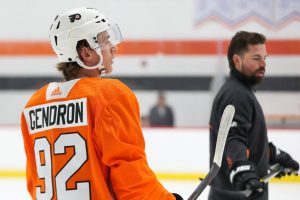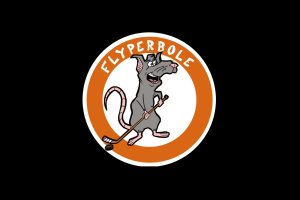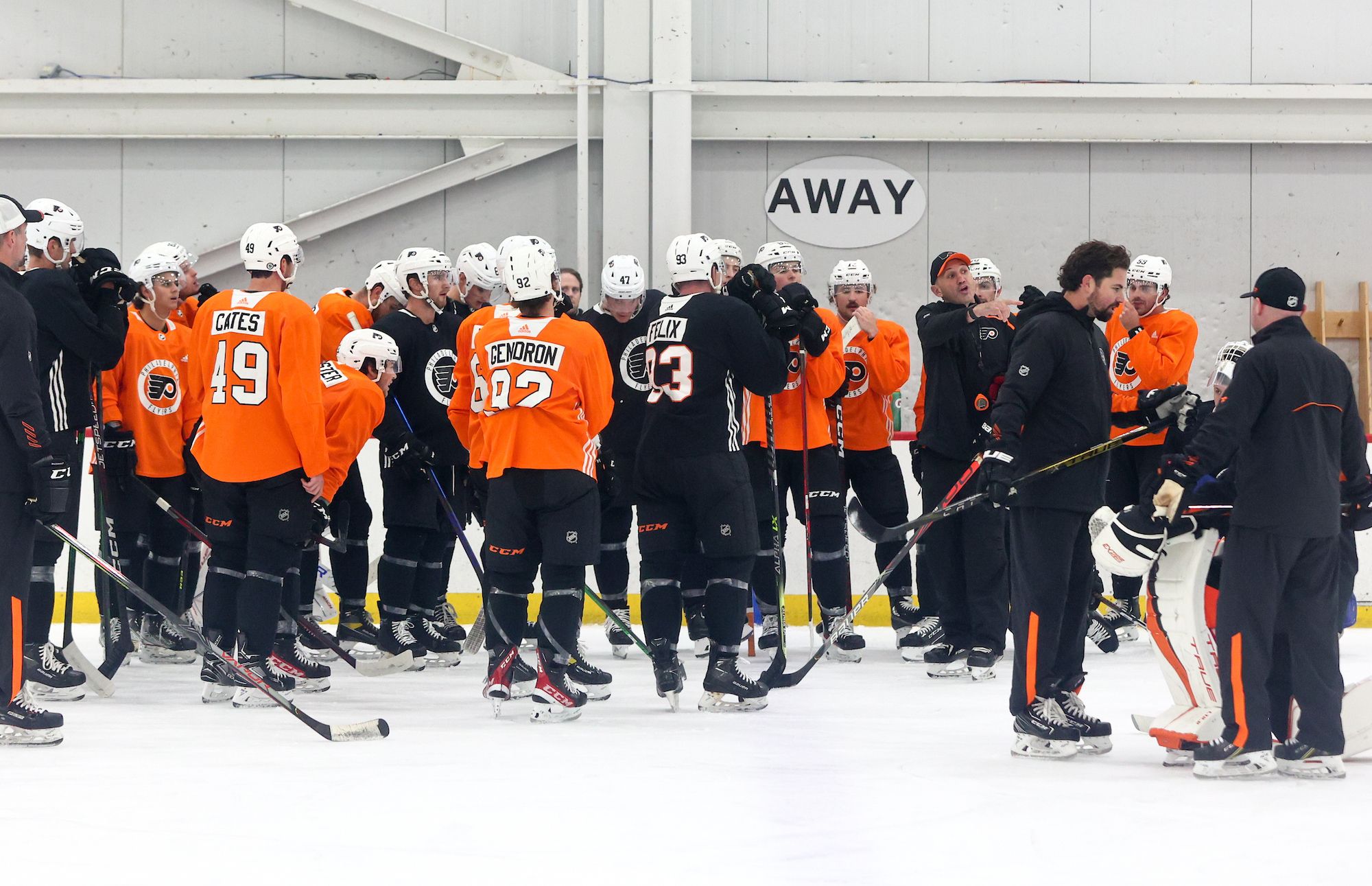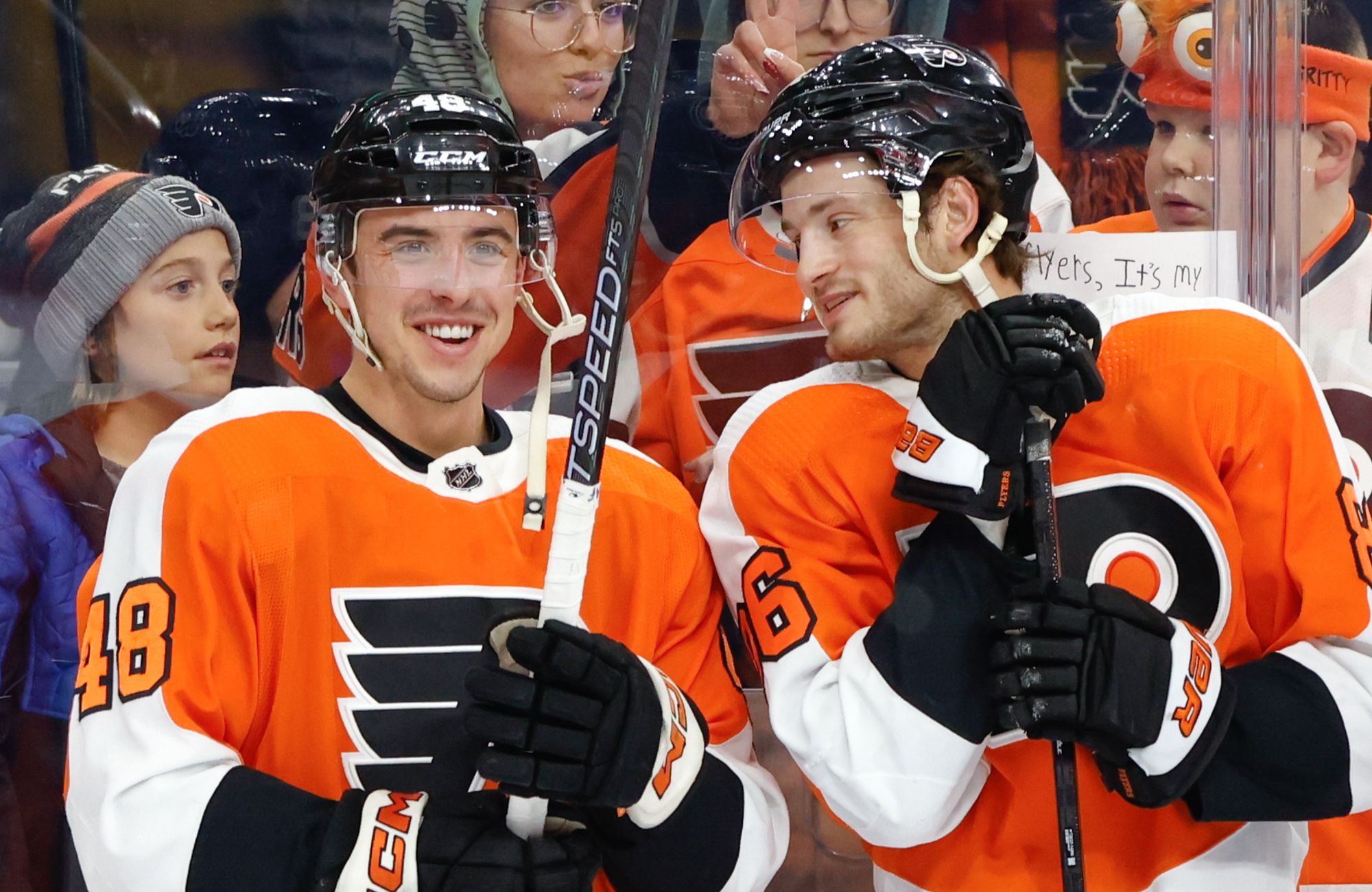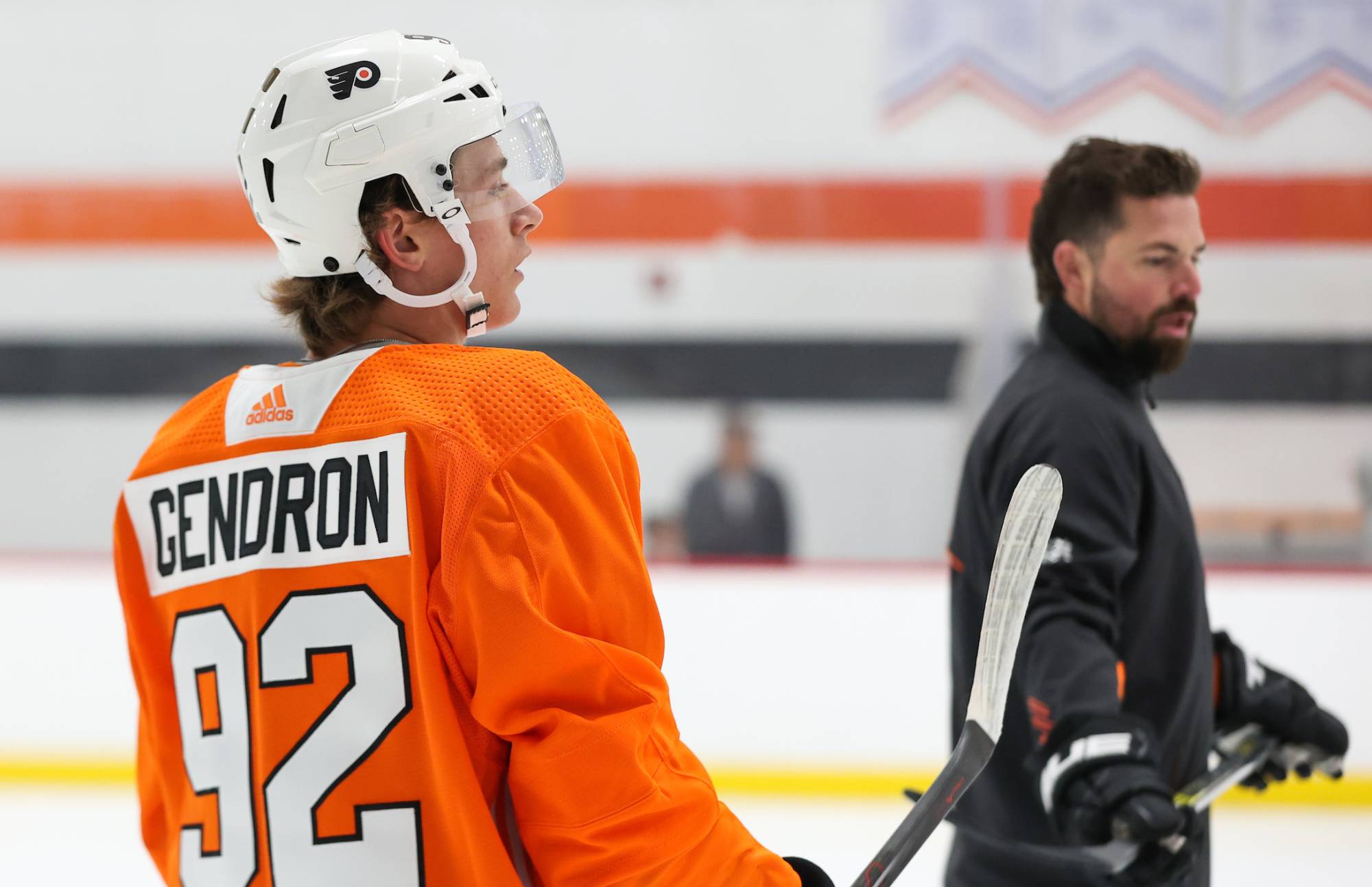Let’s follow up on the earlier story on forward line matchups with a look at how the defensive pairings lined up in Game 1:
| 5v5 minutes | Parise | Kovalchuk | Henrique | Gionta |
| Timonen | 7.1 | 1 | 2.6 | 0.9 |
| Grossmann | 3.4 | 9.4 | 1 | 0.9 |
| Lilja | 1.9 | 1.4 | 7.1 | 4.3 |
Kimmo Timonen and Matt Carle joined Sean Couturier’s line in handling primary defensive duties on Zach Parise. Nicklas Grossmann and Braydon Coburn worked with Claude Giroux on Ilya Kovalchuk, and the Andreas Lilja-Erik Gustafsson unsurprisingly got the softer minutes.
As before, here are the head-to-head results (numbers below are the fraction of the shots the Flyers got with both players on the ice, adjusted for how often the head-to-head matchup started in the offensive zone):
| Flyers‘ Adjusted Corsi | Parise | Kovalchuk | Henrique | Gionta |
| Timonen | 54% | 80% | 43% | N/A |
| Grossmann | 0% | 26% | N/A | 67% |
| Lilja | N/A | 53% | 45% | 36% |
This is reasonably neutral, except that Kovalchuk’s line got the better of Grossmann. However, Kovalchuk ended up with a quiet day in part because of how well Carle did against him: the Flyers outshot the Devils 9-1 when Carle and Kovalchuk were both on the ice (4-1 for Carle-Timonen, 3-0 for Carle-Gustafsson, 2-0 for Carle-Coburn).
After the jump, we look at how the Devils are deploying their defense.
| 5v5 minutes | Zidlicky | Greene | Volchenkov |
| Giroux | 8.3 | 7.5 | 2.2 |
| Briere | 4.7 | 3.7 | 6.4 |
| Couturier | 7.0 | 5.4 | 2.3 |
| Schenn | 2.3 | 4.2 | 2.4 |
The Devils used Anton Volchenkov against Danny Briere a lot, but other than that, there isn’t a strong pattern here. Zidlicky and Greene basically split the Giroux and Couturier minutes evenly. The zone starts aren’t very different from defenseman to defenseman either; it would seem that the Devils just rolled their pairings without worrying too much about matchups.
And the results:
| Flyers’ Adjusted Corsi | Zidlicky | Greene | Volchenkov |
| Giroux | 37% | 57% | 95% |
| Briere | 67% | 35% | 66% |
| Couturier | 40% | 80% | 100% |
| Schenn | 30% | 75% | 0% |
As before, these tiny sample sizes don’t hold any predictive value, but it helps show how things went on that particular day.



